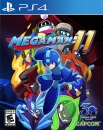@Shadow1980 This debate (or series of them) that is going on here was originally about how much covid impacted Switch sales, and you and other people made some good points in that regard, in spite of the lack of a conclusive answer - which we'll never have: without that covid push, Switch could've sold 19, 24, 10 (?) or 40 (?) million units... We just don't know and will never know, because it's all a hypothetical scenario.
That debate, however, has ended up turning into a different one that is no longer related to Switch and its sales, but to the very fundamentals of the game industry as a whole. And, if I understand this correctly, your stance in relation to this is quite weird: do you really think that devices which are mainly (or specifically) designed to play games on them don't see their intrinsic value increased, and therefore their long-term sales boosted, thanks to the games created to play on them?
Assuming that a product has enough visibility (which is usually the case with consoles), it will sell more or less based on its perceived intrinsic value, and this value is not a constant and also not the same for everyone. Price cuts, for example, happen mainly for two reasons: one, to make the new price match the real perceived value of the product if it didn't match it before - or if it did, but then changed; and two, to match the perceived value that the product may have for new potential customers. Thus, of course, price cuts have an effect on the sales of a product.
The same story can be told about new models, upgraded revisions, limited editions, etc., with the difference that those are not made to match the already perceived value that people have of the product, but to add more intrinsic value to it. The result, however, is the same: increased sales. In this regard, I have to include here something that may not seem related to new versions of a product, but which has a point in common with them: advertising. Good advertising serves basically the same purpose than a new version of a given product: adding intrinsic value to it (apart from giving it more visibility). The only difference is that, in this case, this value is not added thanks to new features, designs or whatever, but to manipulation, by creating a need for that product that didn't exist before.
Also, in the specific case of consoles, another thing that adds value to them are, like you said, bundles. But where does exactly the added value of a bundle lie? I mean, it's true that most bundles offer an extra discount, but if the price is their real added value, why not just making a temporary price cut? Why including an old game with the console if it's not going to add any value to it and therefore not make people want to buy it?
On a similar note, do you think that someone who enters a games store and sees a lot of appealing games on the shelves cares about when those games were released? Games just don't stop selling right after they stop charting on best-sellers list, and games that don't make it to those list also sell - and sometimes well. Or do you really think that the combined sales of all those millions of games that don't chart in a given top list don't have any effect at all in the sales baseline of a console? Do you think that not a single one of the PS4 consoles that are still selling to this day are at least partially due to, for example, God of War or Uncharted 4 (which are only two of many games that are no longer in top 10 lists nowadays)? Do you think that the PS4 would've been able to maintain such a strong baseline for years and achieve almost 120 million units to this day if wouldn't have had all those bigger and smaller games selling constantly, whether they charted or not, or whether they were considered AAA or not (the perceived value of a game is not necessarily in its budget or scope)?
You're using charts and data to support your theory, and that's pretty cool, because all that's factual data. But... it's factual data that is highly decontextualized. Ir order for it to be 100% relevant, it should include information about all the price cuts, new models, revisions, promotions, limited editions, etc., along with their dates; information about all the games that could help boost sales of the console (not only exclusives, but also other medium to high profile games), along with all their release dates; and information about all the relevant events of circumstances that affected or could've affected the sales of the console (like covid, which indeed had a visible effect in sales), along with their dates or duration. And it would also be necessary to do that for more than one region and more than a couple of consoles, so that the sample would be big and varied enough as to be considered relevant. And, even with all that, the picture would still be incomplete, because it's almost impossible to make the entirety of reality fit in a few graphs.
Without that, what we have is only raw data that needs to be analyzed in order to reach any conclusions. And here is the thing: if you contrast (for instance) the same amount of factual data in a left-wing newspaper and in a right-wing newspaper, you'll probably find out that their conclusions on that same amount of factual data are quite different. How's that possible? Well, left-wing people will tell that it's because the right-wing newspaper is lying and right-wing people will tell that is because the left-wing newspaper is lying, but the truth is that it's not necessary that one of them (or both) is lying, because, while raw data is factual, interpretations of such data are not - unless every single element of reality is included, which, as I said, it's almost impossible.
Of course, you're not just offering data, but also other facts to support it, but those facts are still just a part of the whole reality, so how much they work as an explanation of the whole picture, when there are lots of other facts unaccounted, is still subject to (at least) certain degree of interpretation.
All in all, we're probably not going to reach an agreement on this topic, but I would like to add something else to it: if your premise of games not doing anything to raise the sales baseline of a console in the long term is true, why don't all the big three go multiplatform? I mean, if price cuts, new models and other contextual reasons are the only factors pushing sales, wouldn't it make more sense for them to take a different approach on their bussiness decisions and release all their own games in all the consoles in the market, so that they could sell a lot more units and therefore generate way much bigger profits thanks to those extra potential customers (who would be counted in tens of millions)? Their only worry then would be to keep those one-time spikes as high as possible, but that could be easily achieved with two simple actions, that could be applied combined or separately (and which are already done in real life, so I don't know why they couldn't become the norm):
1) Make temporary price cuts on their own consoles during the launch week(s) of the games.
2) Release limited editions of their consoles alongside the launch of their games: a lot of people would want that unique model of the console and, since the competitors wouldn't have the rights to do the same with theirs, they couldn't counter-attack this measure.
However, that's not what first-parties actually do. What we usually see instead is that console developers spend a lot of time, effort and money in creating and promoting their own exclusive games, which, in fact, have become real warhorses today. So my question is pretty simple: why?
Last edited by Verter - on 27 February 2021


















































